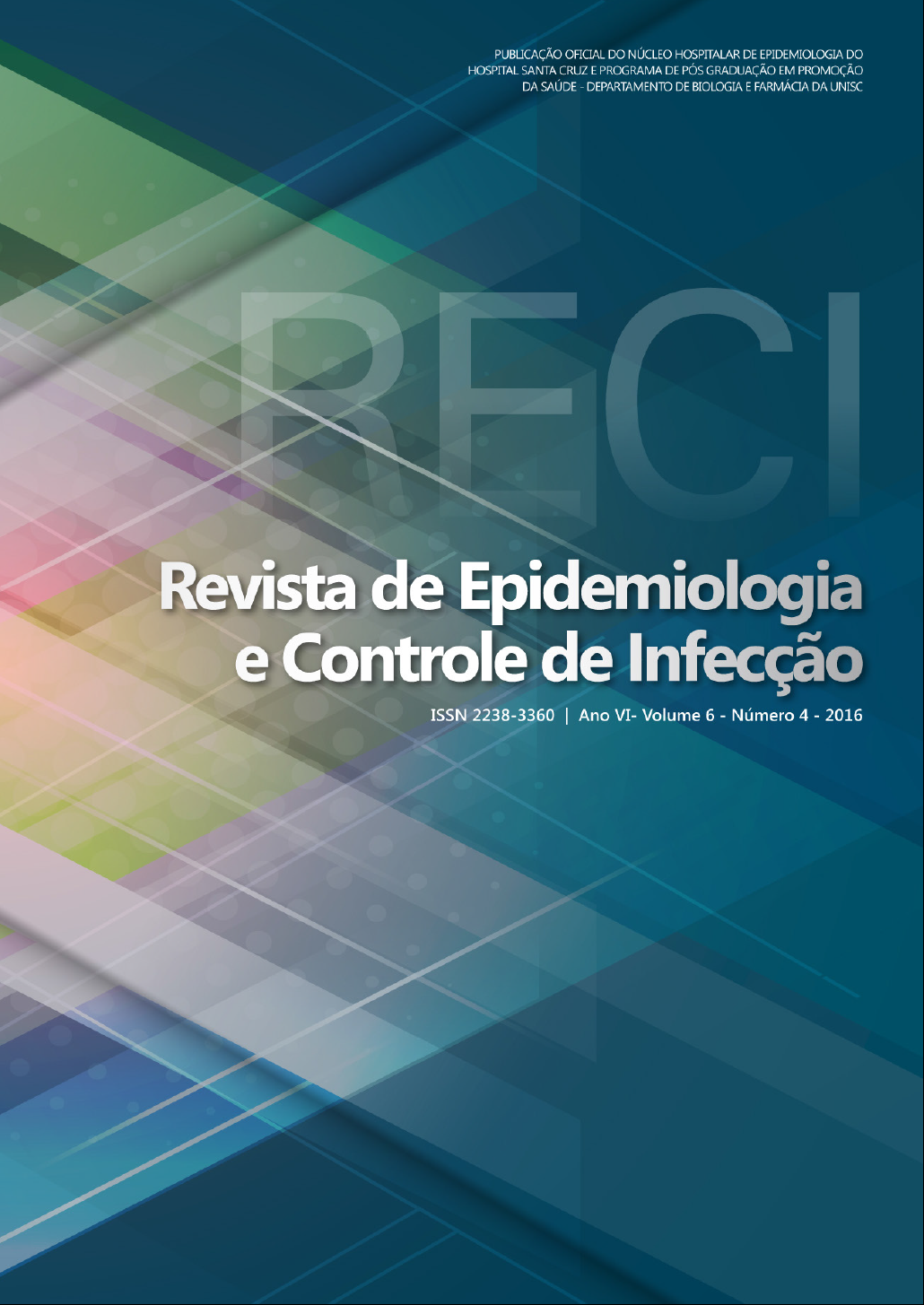Helicobacter pylori pathogenicity genes, cytokine polymorphisms and environmental factors affect the development of gastric diseases: an overview
DOI:
https://doi.org/10.17058/reci.v6i4.7976Abstract
Backgrounds and objectives: Helicobacter pylori is a Gram-negative bacterium that colonizes the stomach of approximately 50% of the world´s human population. This microorganismis the major causal agent of gastritis and is an important risk factor for the development of peptic ulcer disease and gastric carcinoma. The factors that determine these diverse clinical outcomes are subject to continuous investigations and is thought to be determined by interaction of bacterial factors, host immune system and environmental variables.The aim of this review is to provide an overview of these factors that influence susceptibility to severe outcomes of H. pylori infection. Methods: For this, original and review articles were selected by searching the PubMed, CAPES Portal Journals and SCIELO bibliographic databases. Results: H. pylori possesses a set of pathogenicity factors, such as cagA, vacA, iceA, babA for colonizing the gastric mucosa and establishing a chronic infection. These bacterial factors are essential players in modulating the immune responseinvolved in the initiation of the carcinogenesis in the stomach. Host genetic factors contribute to the regulation of the inflammatory response and in the aggravation of mucosal damage once the gastric infection with H. pylori induces the mucosal production of various pro- and anti-inflammatory cytokines in the host. The harmful role of environmental factors is related to poor socioeconomic conditions, salt intake, smoking and alcohol consumption. Conclusion: By deciphering the deterministic rules – if any – of this interplay between factors of the bacterium, host and environmental variables, we will eventually be able to predict, treat, and ultimately prevent serious gastroduodenal diseases.Downloads
Downloads
Published
How to Cite
Issue
Section
License
The author must state that the paper is original (has not been published previously), not infringing any copyright or other ownership right involving third parties. Once the paper is submitted, the Journal reserves the right to make normative changes, such as spelling and grammar, in order to maintain the language standard, but respecting the author’s style. The published papers become ownership of RECI, considering that all the opinions expressed by the authors are their responsibility. Because we are an open access journal, we allow free use of articles in educational and scientific applications provided the source is cited under the Creative Commons CC-BY license.


